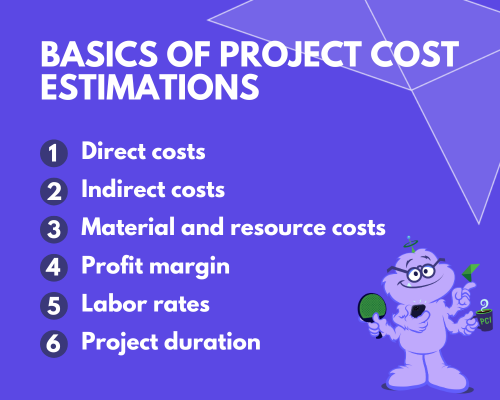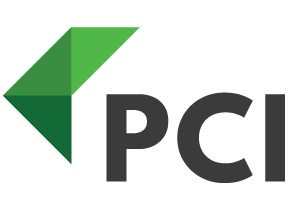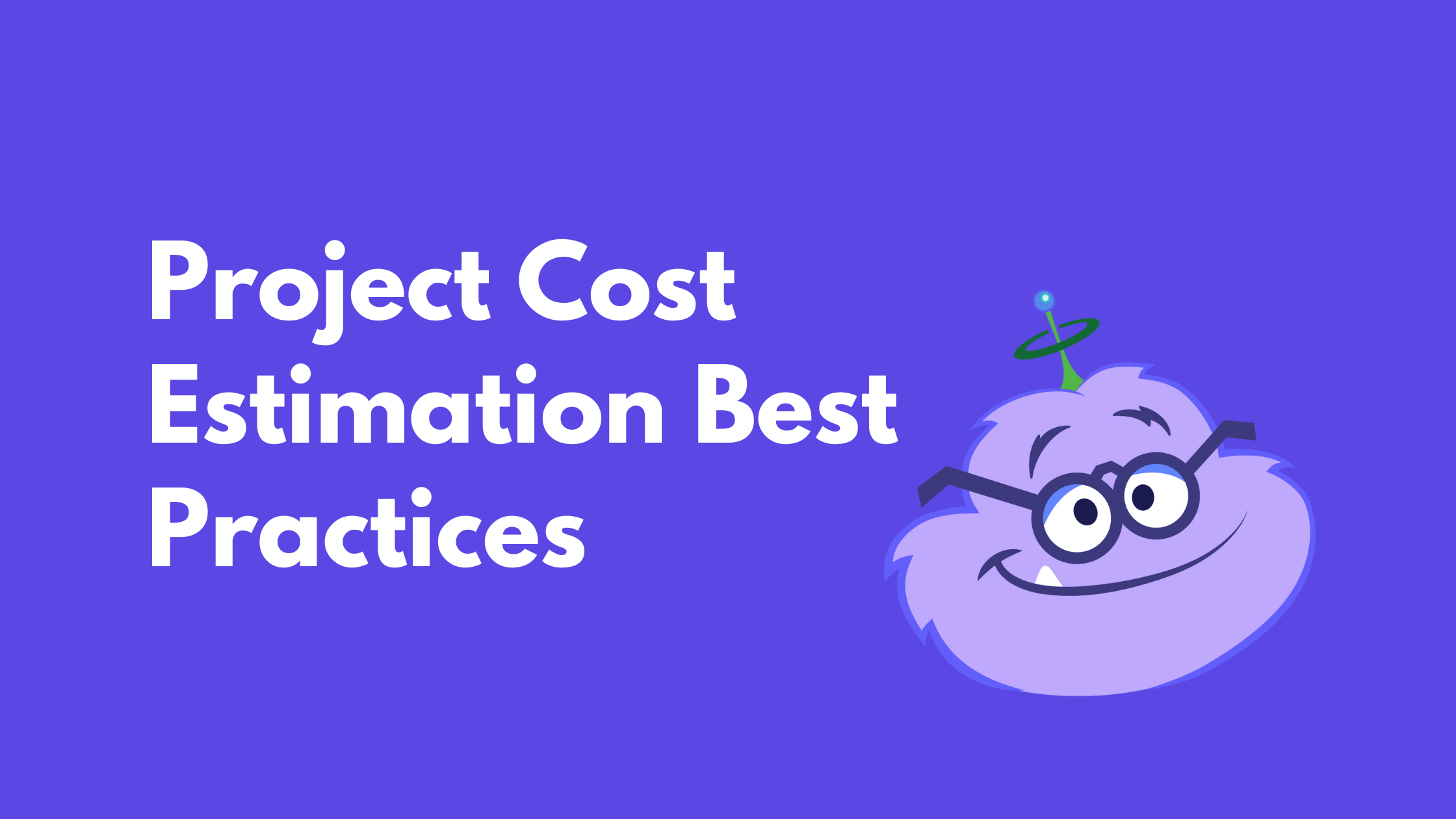What is Project Costing/Project Cost Estimation?
Project cost estimation is the process of estimating the money, time, and resources required to complete a project. It involves analyzing factors such as labor, materials, equipment, and other expenses to forecast the total cost. Accurate cost estimation allows agencies to allocate resources effectively, avoid overspending, and maintain good client relationships by providing transparent pricing from the start. It is crucial for strategic project management, as it enables informed decision-making, budgeting, and early identification of potential cost overruns or risks.
Breaking Down the Basics of Project Costing
- Direct costs: Direct costs for marketing agencies are expenses that can be specifically attributed to a particular marketing project or campaign. These costs typically include salaries for the marketing team working on the project, costs of materials or resources directly used in the campaign, and any other expenses incurred specifically for the execution of that project.
- Indirect costs: Indirect costs in creative agencies typically include overhead costs like administrative expenses and utility bills that are spread across multiple projects. These costs are not directly attributable to a specific project or client but are essential for the overall functioning of the agency. Accurately accounting for indirect costs is crucial for creative agencies to properly allocate expenses and price their services competitively while maintaining profitability.
- Material and resource costs: Material and resource costs for marketing agencies refer to the expenses associated with obtaining necessary materials such as printed collateral, promotional items, and digital assets, as well as the costs of accessing resources such as design tools, software licenses, and third-party services used in creating and executing marketing campaigns. These costs also encompass expenses related to subcontractors, including any potential fluctuations in pricing for materials, resources, and subcontracted services.
- Profit margin: Profit margin refers to the percentage of revenue that represents actual profit after accounting for all costs. It is a key indicator of a marketing agency’s financial performance and efficiency in generating profits from its services. To calculate the profit margin, the agency divides its net profit by its total revenue and expresses the result as a percentage.
- Labor rates: Labor rates are the hourly or salaried compensation for the team members’ work on various projects. These rates take into account factors such as the roles, experience, and contributions of the team members. The labor rates are essential in determining project costs and reflect the value and expertise the team members bring to the agency’s creative endeavors.
- Project duration: Project duration is the time required to complete a creative project. It includes the entire timeline from the project kickoff to its completion, including all stages of work involved in bringing the final creative project to fruition. The project duration can influence resource allocation, scheduling, and overall project management and is essential for estimating costs and ensuring timely delivery to clients.

How to Accurately Estimate Project Costs
- Start with the project scope: When defining the project scope, marketing agencies should clearly outline the objectives, processes, operations, target audience, limits, and project timeline. This ensures that all relevant tasks are identified and helps in allocating resources accordingly. Be sure to discuss what is and is not involved in the project to minimize the risk of wasting resources on tasks or assets that are not relevant or necessary.
- Estimate project resources: Once the agency has defined the full project scope, it’s time to evaluate the resources needed. When determining the necessary resources for a project, agencies should consider the team size, required equipment and supplies, and task timelines and allocate resources for potential setbacks or complications.
- Break down costs: When agencies are estimating costs for a project, it’s essential to break down these costs into smaller, more manageable components. Breaking down costs allows the team to identify potential savings and areas that may require a larger budget. This breakdown can also help adjust the estimates as necessary, ensuring that the project remains within budget constraints and allows for better financial planning and control.
- Build a project budget: When building a project budget, agencies should gather comprehensive cost information, including historical data from past projects, to inform the budgeting process. Including a contingency fund of around 5-10% is advisable to cover unexpected expenses. Involving relevant stakeholders in the budgeting process ensures that all perspectives are considered, and gaining their buy-in is essential. Lastly, it is crucial to obtain approval from the relevant parties before launching the project to ensure the validity and support of the budget.
Tools to Improve Your Project Cost Estimation and Increase Profitability
Agency management software can simplify the project costing process for agencies of all sizes. Tools like Deltek WorkBook offer features enabling you to track past project revenue easily. Another helpful feature is the Estimate to Complete (ETC), which calculates all the hours and costs remaining within a project plan. By activating ETC in WorkBook, you can quickly monitor if users are on track to complete their assigned tasks. Once the responses are recorded, WorkBook will provide an estimate of the remaining budget needed to complete the project.
Are you curious how Deltek WorkBook can improve efficiency and profitability for your agency? As a proud Deltek partner, PCI would be happy to show you how WorkBook is the perfect solution for you. If you’re already using WorkBook, we also offer a WorkBook ReBoot program. This program allows us to assess your current setup and recommend any necessary improvements.






